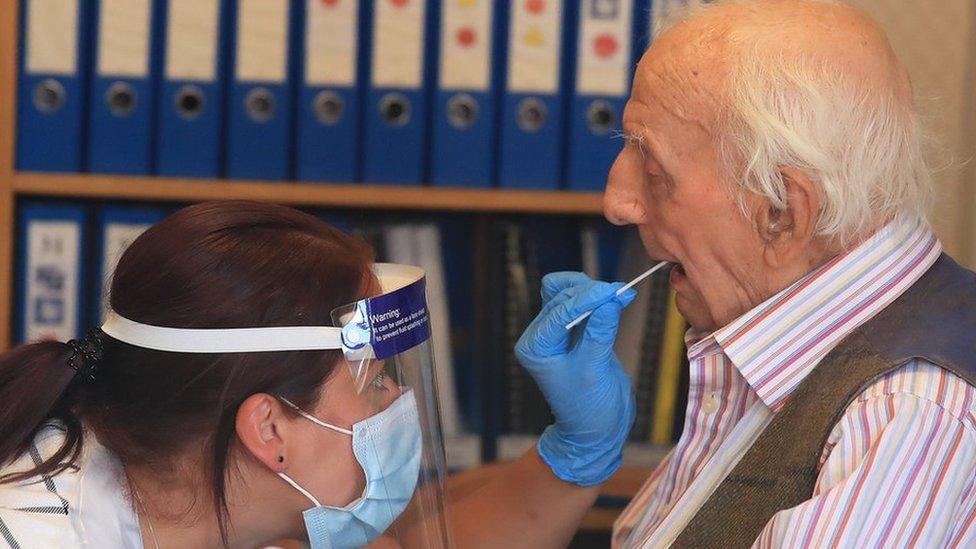Coronavirus: Scarborough care home tells how it coped with Covid-19
- Published
The epidemic has been challenging for staff and residents at care homes such as St Ceilia's
St Cecilia's is one of the thousands of care homes across the UK where staff have been fighting to protect residents during the coronavirus pandemic.
Ten residents died at the Scarborough home during a Covid-19 outbreak and visitors were banned from seeing loved ones to prevent further infection.
The BBC spent a day inside St Cecilia's, hearing how staff and residents have coped in the most difficult of circumstances.
'There's been tears but also laughter'
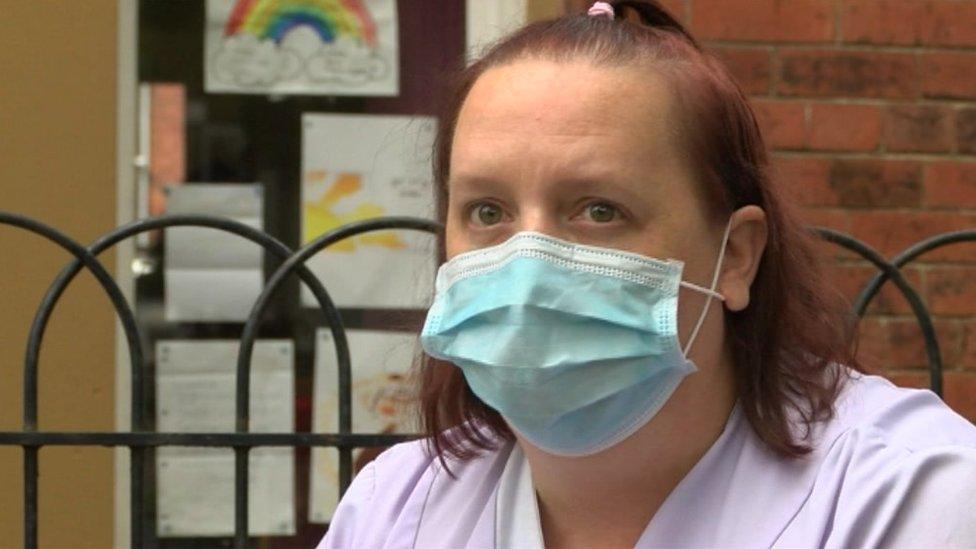
Healthcare assistant Joanne Wilson said she wanted to help the residents who are so "kind and caring"
Joanne Wilson started working at the home, her first healthcare job, at the start of March, just weeks before the UK went into lockdown.
"It's been scary, it's been sad, there's been tears, we've also laughed and we've all just got on with it and helped each other as best we can," she said.
"It's not about the money for me, it's about looking after these people and making sure they're alright.
"I see it as if it was my mum and dad I'd want them to be treated how I treat other people's mums and dads and grandparents."
'We've got no visitors, no family'
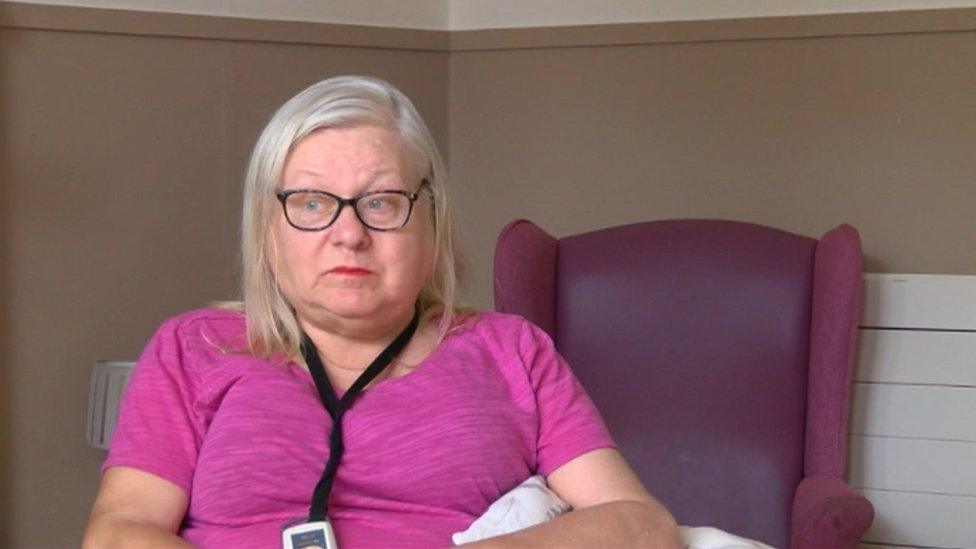
Susan Thurlbeck said it was "very sad" that residents had died
During a two-week period, early in the pandemic, 10 residents from St Cecilia's died. Three tested positive for Covid-19.
However, the other seven were never tested so their families will never know for certain whether they had the virus.
Resident Susan Thurlbeck had the virus but survived, describing the member of staff who helped to feed her as "so caring".
"We lost friends, it's very quiet now, nobody is allowed in to visit," she said.
"That's quite sad because we've got no visitors, no family."
St Cecilia's has now started letting families and residents meet in the garden.
'I could very easily weep'
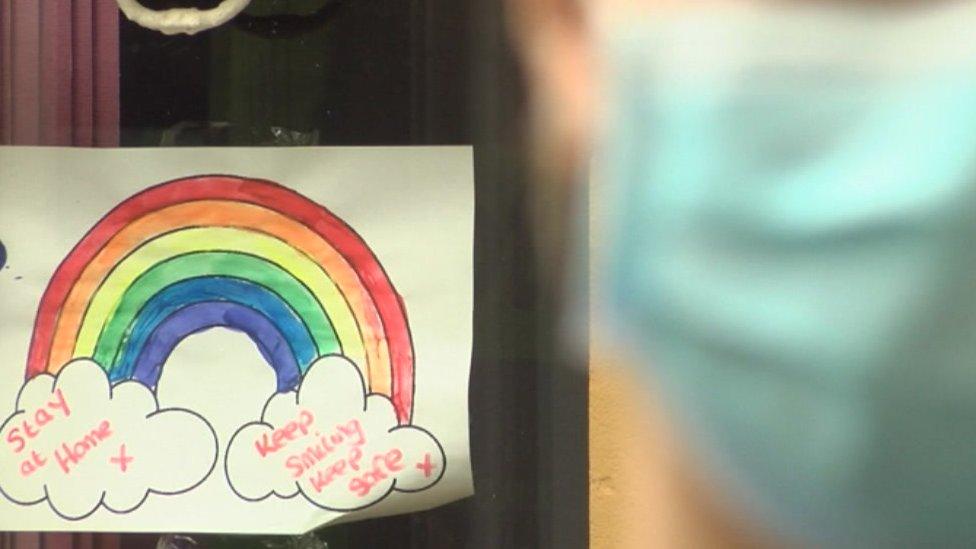
The government introduced regular coronavirus testing for care homes earlier this month
The home, which has 44 registered beds, also takes in elderly residents from hospitals on a temporary basis.
They live on the second floor away from the rest and are isolated for two weeks in case they have Covid-19.
However, many have been stuck there for months waiting for the social care system to find them a permanent home.
One, who was once a missionary in Africa, has spent three months in her room.
She said: "I've never had anyone to dress me or wash me, I did it all myself.
"Once you come in here you realise you've got to have help and people have been helping me. I could weep very easily."
Simon Walls, the clinical lead at the home, said residents in this position often become lonely.
"They can't see any of their family or friends," he said.
"I've noticed the massive detrimental effect it has on their mental health, it's horrific and I certainly wouldn't want it to happen to a member of my family."
'We knew them. We are like a family'
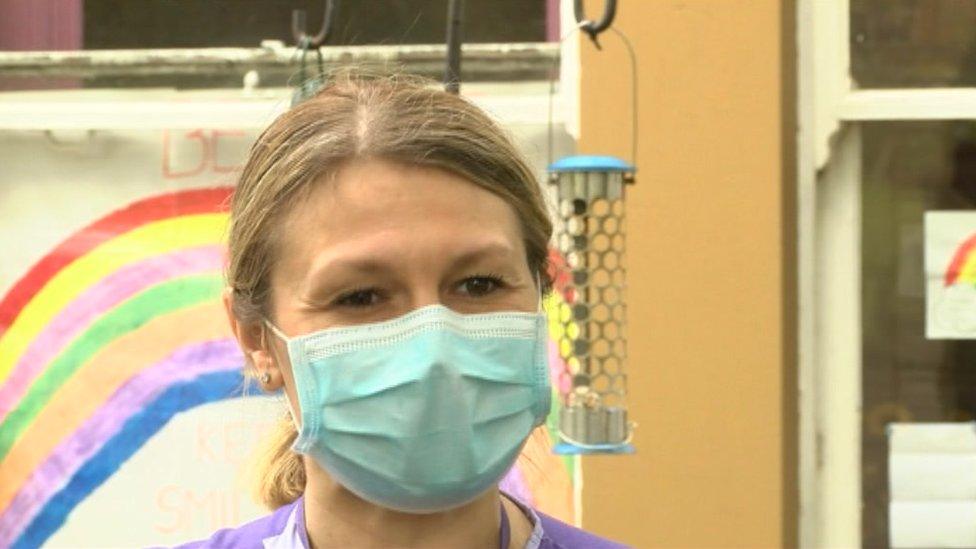
Corina Grigoruta said her children keep her going: "They tell me, 'we're so proud of you mummy'."
Almost half the care homes in England have seen outbreaks of coronavirus, accounting for about a third of all Covid-19 deaths so far.
Almost 20,000 residents have died while another 10,000 excess deaths have been registered to other causes.
Previous analysis from the Office for National Statistics has suggested many of those "non-Covid" deaths could have involved undiagnosed coronavirus.
Team leader Corina Grigoruta said: "The truth is that we lost people that were in the nursing home for years.
"We knew them because we are like a family."
'I was quite ill, very tired'
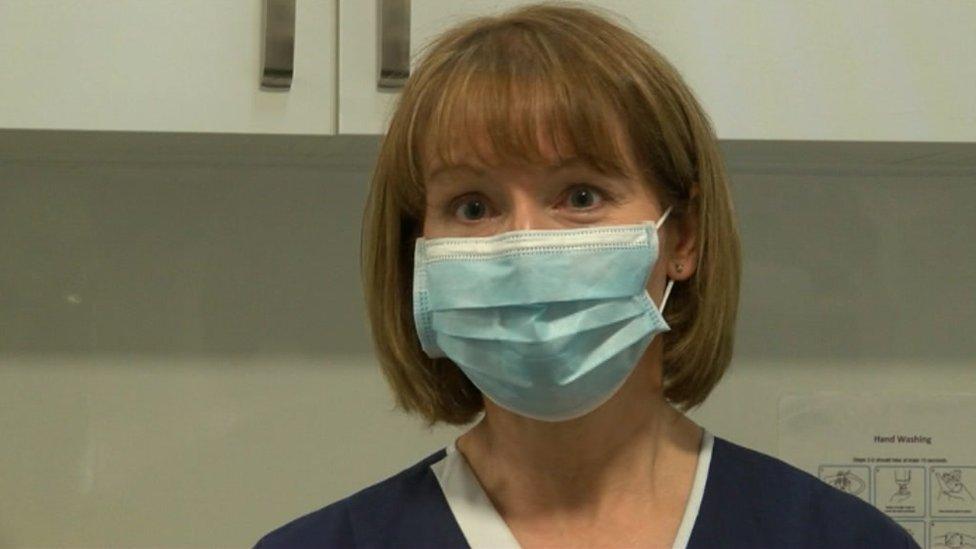
Carol Cattermer is among staff who have experienced symptoms associated with Covid-19
Like many care homes around the country, staff at St Cecilia's have struggled to get tested for Covid-19.
To date, 23 members of the 50 staff have self-isolated after showing symptoms, although many of them still do not know for sure if they have had the virus.
Nurse Carol Cattermer said she would like to know if she has coronavirus antibodies.
She said: "I was quite ill with a viral illness, very tired, lethargic, high temperature.
"All I know is that I got over whatever it was that I had and I carried on."

Follow BBC Yorkshire on Facebook, external, Twitter, external and Instagram, external. Send your story ideas to yorkslincs.news@bbc.co.uk or send video here.
- Published3 July 2020
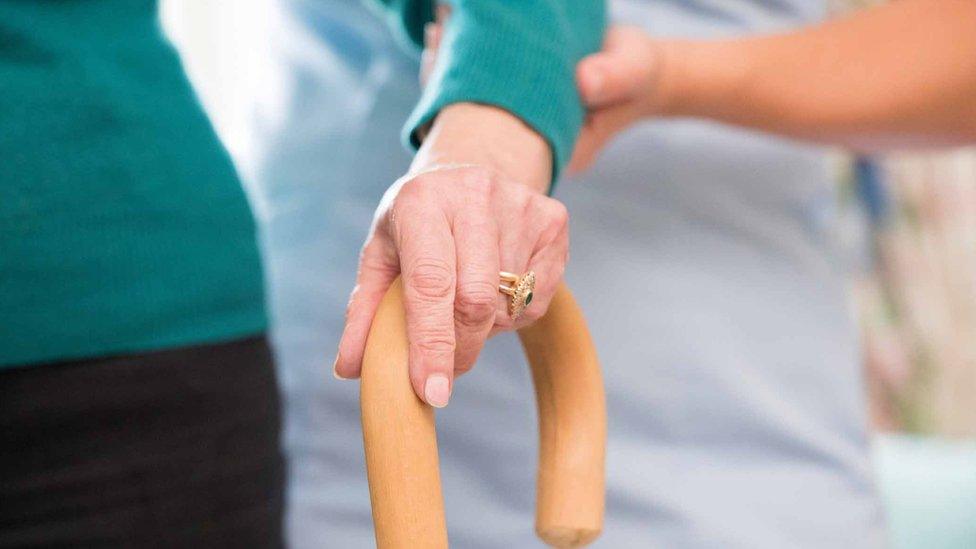
- Published3 July 2020
